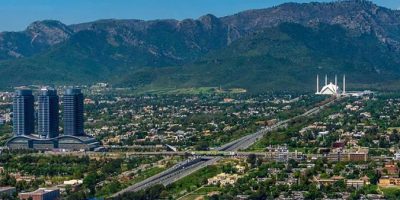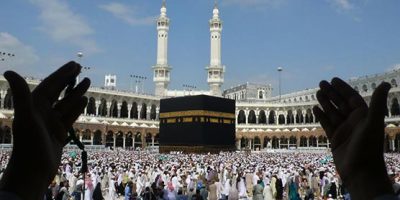SAARC reactivation, conflicts resolution mechanisms urged for peace in SA

Devcom-Pakistan international webinar urged India to support the revival of South Asia Association of Regional Cooperation (SAARC) with the human rights watchdog established within to get favoured nation status and global appreciation.
ISLAMABAD, APR 10 (DNA) – Expert while speaking at a webinar on Saturday urged the governments to reactivate the South Asia Association of Regional Cooperation (SAARC) to curb the militancy and terrorisms, bilateral conflicts and transboundary challenges confronting the region because of climate change. Occupied Kashmir is the flashpoint between the two nuclear nation states where violation of human rights are at its peak.
The panel of experts urged the nondemocratic forces to give a chance to people to strengthen democracy and democratic institutions within their countries.
Democracy ensures basic human rights that lead to peace in a society. But, unfortunately the hegemonic approaches and decision making of the governments have excluded the voices of the people. Only the vested interest prevail at the cost of human rights.
Development Communications Network (Devcom-Pakistan) organized the international webinar on the theme “Ensuring human right for peace in the region”. The panel of experts included former senator Farhatullah Babar, Lt. General (retd) Talat Masood, Justice (retd) Ali Nawaz Chowhan, General Secretary Human Rights Commission of Pakistan Harris Khalique, Devcom-Pakistan Executive Director Munir Ahmed, an expert from Tehran Dr Yahya Jahangiri, Desert Resource Centre (India) Founder Director Anshul Ojha, Secretary General Human Rights Alliance, Kathmandu (Nepal) Bidur Subedi, Joint Secretary SAARC Human Rights Foundation (Dhaka-Bangladesh) MD Tanbirul Islam, and President International Human Right Movement (London-UK) Rana Basharat Ali Khan.
Seasoned politician and a former senator Farhatullah Babar said some hidden-hands always disrupted the peace efforts in the region primarily between Pakistan and India. Hatred is the political slogan to win vote bank while the region is suffering from poverty, hunger and the impact of climate change.
A just and a strong parliamentary system will ensure the fair distribution of resources ultimately addressing human rights. Democratic governments are less likely to go to war.
Mr. Babar said Pakistan needed to work to strengthen democracy, democratic institutions and parliament. We have seen lately the adverse impact of hybrid democracy. The state institutions need to understand the importance of people’s voices and concerns. Even the Supreme Court of Pakistan has stressed upon the freedom of expression but media bashing is on. Now, the citizens are barred to the right to criticism too.
Devcom-Pakistan Director Munir Ahmed said the countries need to ensure citizens participation in the decision making for the maturity of the political process. Fair distribution of resources and just policies shall bring the socio-political equilibrium to ensure human rights. Women and marginalized communities and segments are under severe stress.
Bilateral and multilateral conflicts are nowhere on the priority agenda of the governments. The only regional platform SAARC is dormant for years. In the absence of SAARC what else could be the platform to discuss the regional frameworks of collaboration on militancy, terrorisms and transboundary climate impact and water scarcity.
Ahmed said we need to learn from China that has successfully dealt with poverty, doing trade efficiently with the countries China has conflicts. The Shanghai Cooperation Organization (SCO) has successfully integrated trade and commerce issues with the development of the region in a broader framework of cooperation. India shall support the revival of SAARC with the human rights watchdog established within to get a favoured nation status and global appreciation.
Justice (retd) Ali Nawaz Chowhan, stressed to strengthen the human rights institutions to improve the situation. The National Commission of Human Rights (NCHR), a statutory body under the parliament of Pakistan, is abandoned for the last three years.
In the first three years, the Commission investigated the facts to develop 35 reports on a variety of issues for the government to act upon accordingly under the guidance of the Pakistan’s constitution. They all are dusting in the shelves,
Harris Khalique said no justice no peace. The state has many deficiencies in ensuring human rights. The dissenting voices were taken as anti-state and are being considered even today. Forced disappearances in Balochistan and erstwhile FATA districts speaks volumes that the state is not interested to listen to the woes of the people. Militancy is a common challenge for all the countries but no joint action plan exists.
Any rights-based campaign in India would be considered as pro-Pakistan or vice versa. The Pakistan government has to show its vigor for human rights by functionalizing the National Commission on Human Rights and National Commission on the Status of Women as early as possible.
Anshul Ohjha said the climate impact is the biggest threat to the people in the region including water scarcity at the top challenge. Unfortunately, there is no information portal for the SAARC countries to know the potential threats. Desert communities and the poor are suffering much more than anyone else.
Dr. Yahya Jahangiri said the faith-based approach has worked significantly to ensure human rights. Though Iran is also the victim but more than willing to be part of the larger regional framework for human rights.=DNA
===================
Related News

No holiday for federal institutions on Dec 26: Cabinet Division
ISLAMABAD, DEC 24: Despite a local holiday in the federal capital, all federal institutions willRead More

Govt decides to place additional Rs1.67bn burden on Hajj pilgrims
ISLAMABAD, DEC 24: The Ministry of Religious Affairs has decided to place an additional financialRead More


Comments are Closed